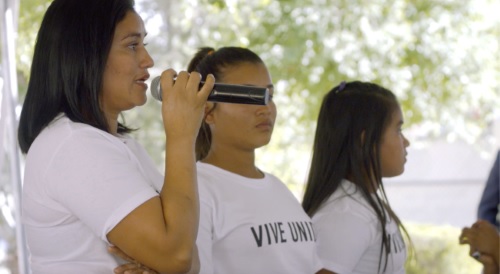
When I visited the U.S.-Mexico border earlier this year, I met parents and children fleeing violence in their home countries. These children were receiving basic care. But they weren’t in school. Most didn’t have books or computers to help them learn.
Amid the migrant crisis at the border, we can’t overlook the fact that kids aren’t gaining the skills they need. Basic requirements, such as personal security, must come first, but statistics tell us how important early childhood education is for children.
Research shows that 90 percent of a child’s brain develops in the first five years of life. That means every day without early learning opportunities sets a young child back. Worldwide, about 63 million primary and elementary school-aged children don’t attend school. Their odds for success in work and life are limited.
In Ciudad Juárez, I met a woman with three young daughters who escaped gang violence in Central America. Her husband was in the United States, but she was unable to join him. Each day was a traumatic waiting game, not knowing if she and her daughters would be forced to return to Nicaragua. I wanted to tell her that things will get better, but I couldn’t guarantee that. Only in recent days did I learn that she and her daughters did receive political asylum – and have since joined her husband in the U.S.
Meeting this incredible woman strengthened my resolve to ensure that we do our collective best for our world’s children. In the U.S., where just 57 percent of kids from low-wage are enrolled in pre-K, we need to improve early education. That’s something that United Way is fighting for. But our fight is for every child -- on each side of the U.S. border, and around the world.
School starts for many children in the next few months. Students will pick up where they left off, hopefully having avoided the summer slide. But for migrant children along the U.S.-Mexico border, or in a refugee camp in the Middle East or Latin America, the goals will be different.
They won’t be focused on reading the next chapter in their books. They’ll be wondering where their next stop will be, and where their next meal will come from.
Early education is important. It changes the course of young lives, something that parents around the world know. Of course, humane treatment of migrants must be our priority. But we must also do everything we can to ensure access to early education that puts children on the path to success.
Visit united4humanity.org to learn more about United Way’s migration work. For more about our early education work, click here.
